Southwest province reduces trafficking from Golden Triangle, takes broader approach
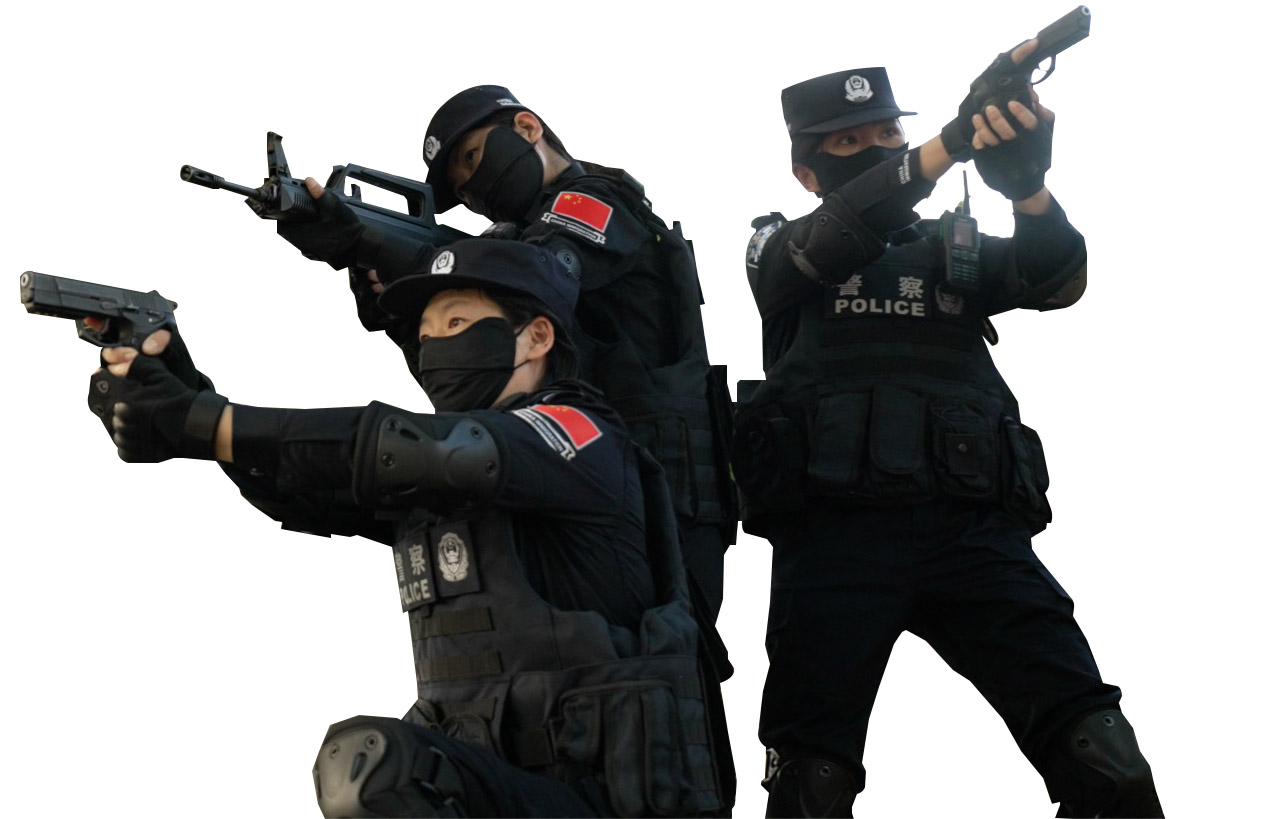
Ren Shasha, 32, knows what it takes to bust a heroin deal — an apron, some sunflower seeds, and the natural advantage that undercover female police have of going unnoticed by criminals.
Established in 2015, Ren's team is the first all-female anti-drug unit in China's national border defense system.
"I joined the team at its founding when there were only three female officers. Now it has expanded to eight," said Ren of the female investigation unit of the Dehong Border Administration Detachment in Yunnan province.
Many drug traffickers possess strong counter-surveillance skills, but female officers have natural advantages in certain tasks. Police skills such as disguise, surveillance and tracking often result in positive outcomes when women are involved, Ren said.
In a recent case, the team received intelligence about a potential drug deal taking place in a parking lot in Mangshi city, Dehong Dai and Jingpo autonomous prefecture. With its proximity to the notorious Golden Triangle, Southwest China's Yunnan province remains the front line in the country's efforts to stem the cross-border flow of illicit drugs.
READ MORE: Heroines at the border
"I disguised myself as a restaurant worker and positioned myself directly facing the main entrance of the parking lot. I remember wearing a restaurant apron and buying some sunflower seeds. Then, I sat around chatting with others to make the drug dealers believe I was genuinely working there," she said.
Hours later, a white car entered the parking lot and circled a few times. After confirming that it was safe, the passengers got out and pretended to move a tire into the car.
"When they were about 2 meters from the vehicle, we arrested them. We seized more than 30 kilograms of heroin in this case. Under the car mat we also found a handgun and a dozen bullets," Ren said.
Making an arrest is only the beginning of the process.
"Applying for arrest warrants can take about a month, followed by around two more months to gather evidence for the prosecutors," she said.
"A case takes at least six months before it enters a lengthy trial process. That's why we emphasize catching suspects in the act."
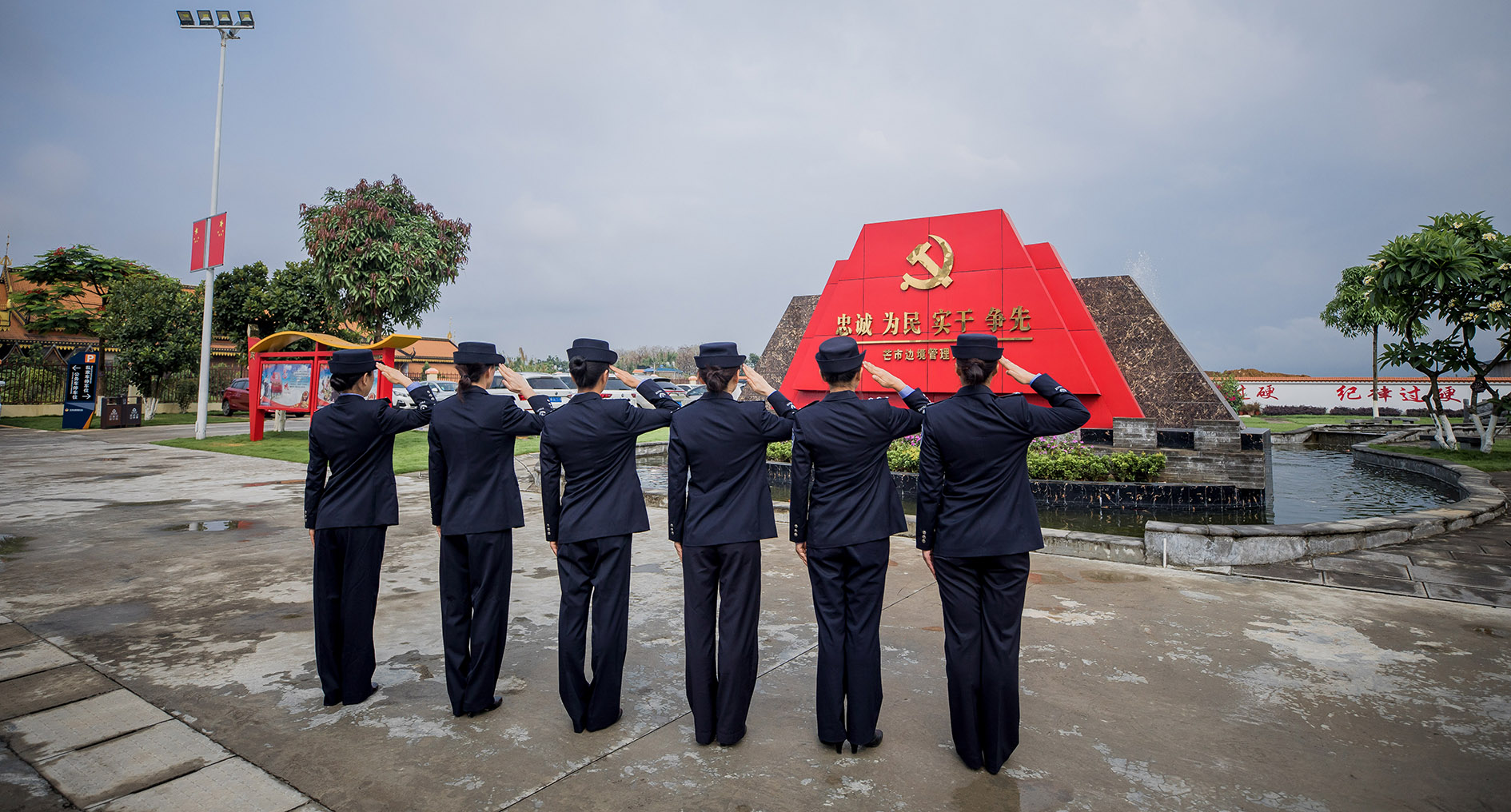
Catching a liar
In November 2022, Ren and her colleagues faced another challenging case.
The suspect had been apprehended but had extensive counter-surveillance skills. He was arrogant and continuously lied during his confession. To expose his deceit, Ren and her team had to meticulously gather evidence that contradicted each of his claims.
"He traveled from Kunming to Mangshi to find a spot for a deal. He lied about his activities during those two days, claiming that his father was sick and that he went to Mangshi to pray in front the Menghuan Grand Golden Pagoda for his father's health," she said.
"Later, we reviewed all the surveillance footage, tracked his movements, and disproved every statement he made until he ultimately confessed in court. Even he was surprised by our work."
Ren said they never found any chat records on the suspect's phone about his criminal activities, but, "he later confessed that they used Alipay's secret chat feature, where messages self-delete after being read."
The female anti-drug team played a crucial role in a case in March 2021, when a 20-year-old foreign woman named Jia fell under the influence of criminals.
Due to her impoverished circumstances, she transported drugs to Dehong. She was caught and arrested, but refused to cooperate with the police investigation.
Ren discovered a photo of Jia with another woman, along with a note that contained the woman's name, phone number and a message.
Recognizing that this woman could be either a family member or a close friend, Ren and a female colleague gently approached Jia to discuss the importance of family bonds and friendship. Gradually, Jia's defenses softened, and she opened up, eventually confessing the truth.
Based on Jia's confession, police were able to continue their investigation and arrested another trafficker, and successfully seized 12 kg of heroin.
By June 2025, the special team had managed over 240 drug cases, addressed 300 border crimes, arrested more than 800 suspects, and seized 1.1 metric tons of drugs.
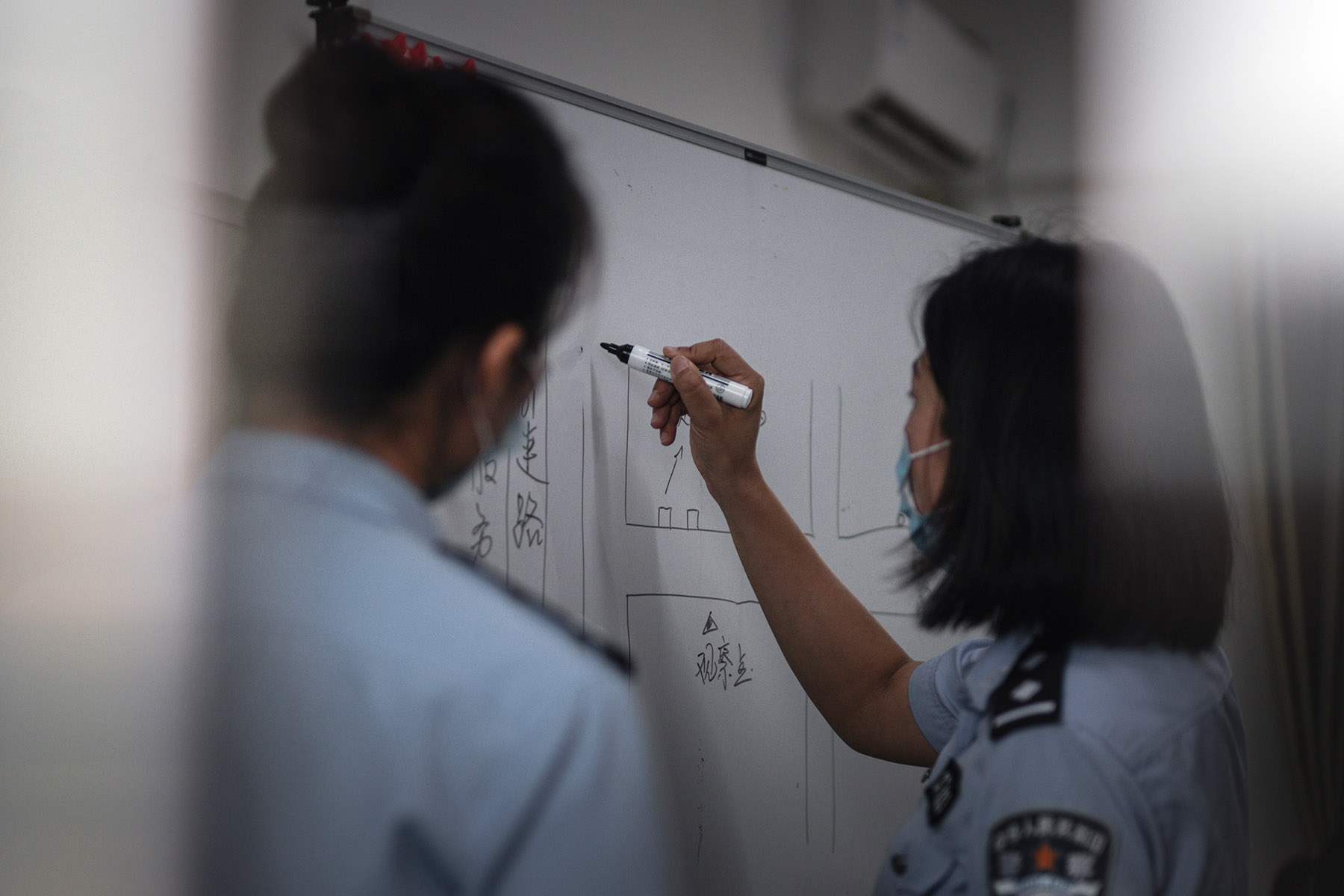
Strike like a hawk
Last winter, in a quiet park near the border of Yunnan province, three anti-drug officers executed a discreet but decisive operation.
Holding cups of milk tea and pretending to chat, they blended into their surroundings to avoid suspicion from nearby drug-trafficking suspects.
Among the undercover officers was Wu Zhen, a Party committee member and a fourth-grade senior police chief with the Mangshi Border Management Brigade under the Dehong Border Administration Detachment. "Two female officers accompanied me in this task, and one was pretending to be my girlfriend," he recalled.
The suspects, confident that no police were nearby, spoke openly on their phones. The officers stayed close by, pretending to watch fishermen and casually chatting among themselves.
When the suspects initiated the deal, the officers sprang into action. "Just like a hawk catching its prey," Wu said.
Police near the perimeter quickly surrounded the area and arrested three drug traffickers, seizing nearly 25 kg of drugs, including 7 kg of heroin.
With nearly two decades on the front line, Wu, 42, has been involved in the arrests of more than 200 suspects in drug-related cases, and the detention of over 1,300 drug users.
He has helped dismantle more than 40 trafficking networks and led seizures of 2.1 tons of narcotics, and 1,000 kg of precursor chemicals.
"Investigations are like hunting for prey," Wu said. "Success demands patience. Not every effort pays off, but each one requires 100 percent commitment.
"Every extra gram of drugs seized at the border makes people in China safer from drug harm," Wu said. This phrase is also a mantra for Yunnan's border anti-drug police.
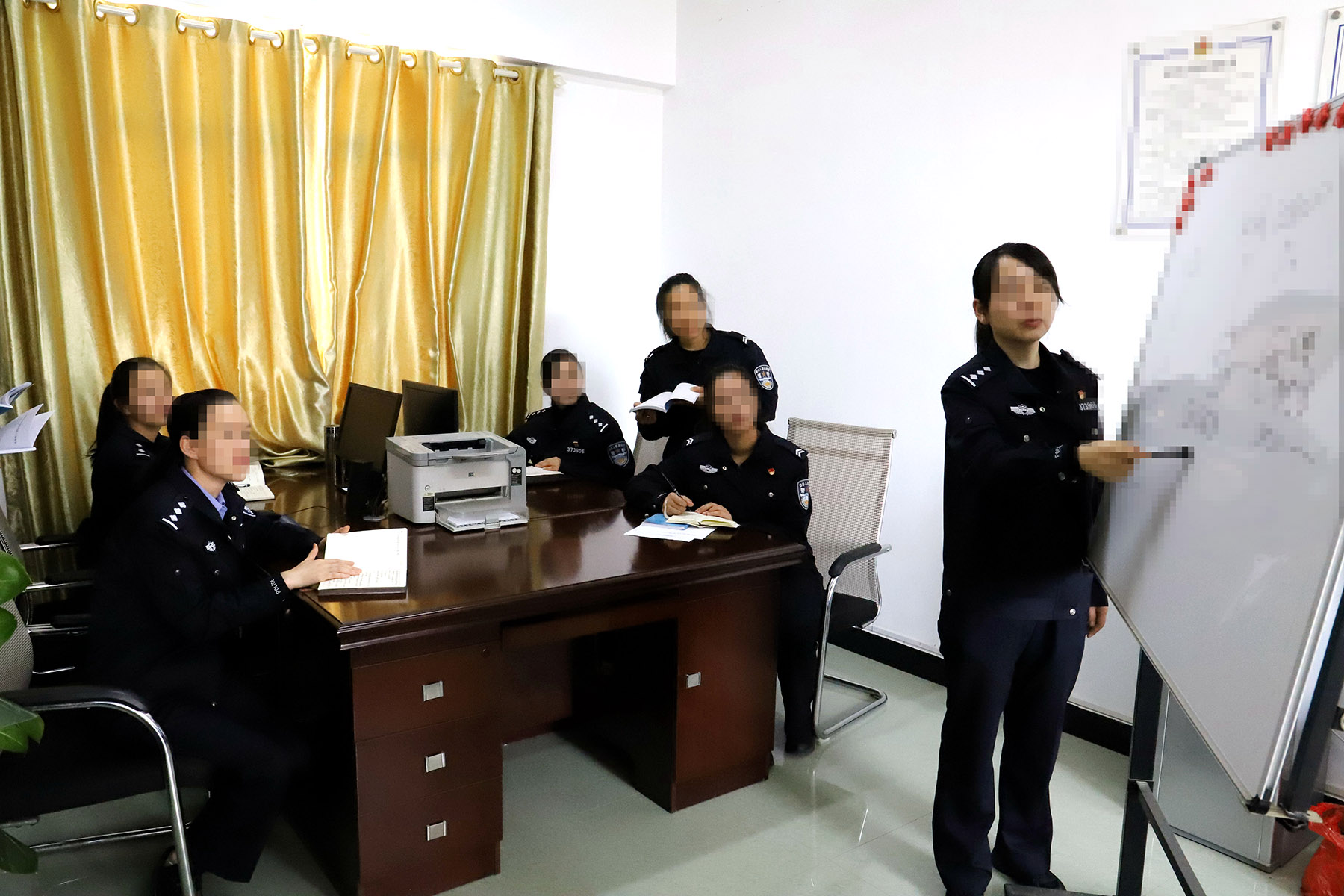
Crackdown success
Located on China's southwestern border, Yunnan is adjacent to the Golden Triangle where the borders of Thailand, Laos, and Myanmar meet. The area was once the world's leading producer of opium.
Its unique geography still makes the region a target for both domestic and foreign drug trafficking gangs, who use it as a marketplace and smuggling route. Illicit drugs — primarily methamphetamine, heroin and opium — can find their way onto the Chinese mainland via Yunnan.
According to a report on China's drug situation in 2024, illegal drug seizures in the Golden Triangle have decreased, but it remains the primary source of outlawed substances.
Last year, China confiscated 12.4 tons of illegal drugs from the Golden Triangle, an 18.4 percent year-on-year decrease, which accounted for 76 percent of all foreign drug seizures.
During the same period, the Chinese mainland addressed 37,000 drug crime cases, arrested 62,000 suspects, seized 26.7 tons of illicit drugs, and dealt with 193,000 drug users — all figures fell compared with the previous year.
The improvement in border drug control corresponds with Yunnan's intensified crackdowns on drug trafficking.
Zhang Chunze, deputy director of the Yunnan Provincial Narcotics Control Committee, said since the fifth round of China's large-scale crackdown on drugs started in 2021, Yunnan's anti-drug departments have strictly cracked down on drug crimes and promoted comprehensive drug control.
The province has resolved over 15,400 drug-related criminal cases, arrested 17,000 suspects, and confiscated 66.59 tons of various drugs.
"This has significantly curtailed the boldness of drug crimes. The number of drug cases, arrests, and users has decreased year after year, and the drug situation continues to improve," Zhang said.
In combating foreign drug sources, Yunnan has enhanced international anti-drug cooperation, conducting 173 border anti-drug dialogues and 245 joint law enforcement actions with Myanmar, Laos, Vietnam and Thailand.
The province has destroyed 18 foreign drug labs, 13 drug storage facilities and apprehended 280 foreign drug fugitives, effectively reducing illicit drug inflow.
Additionally, Yunnan has integrated advanced technology such as high-precision video cameras, portable X-ray cargo inspection systems, and drones for border patrols, significantly improving detection and interception capabilities.
X-ray technology has allowed police to identify increasingly sophisticated cross-border drug-trafficking methods.
"There was a time when traffickers disguised drugs as ginger. It was a very secretive and professional disguise, with drugs packed and hidden inside the ginger skin," said Ren of the female investigation unit.
"The ginger skin was made exceptionally thin. If the courier station hadn't scanned the package and discovered that the fake ginger lacked a fiber structure, we might never have uncovered it," she said.
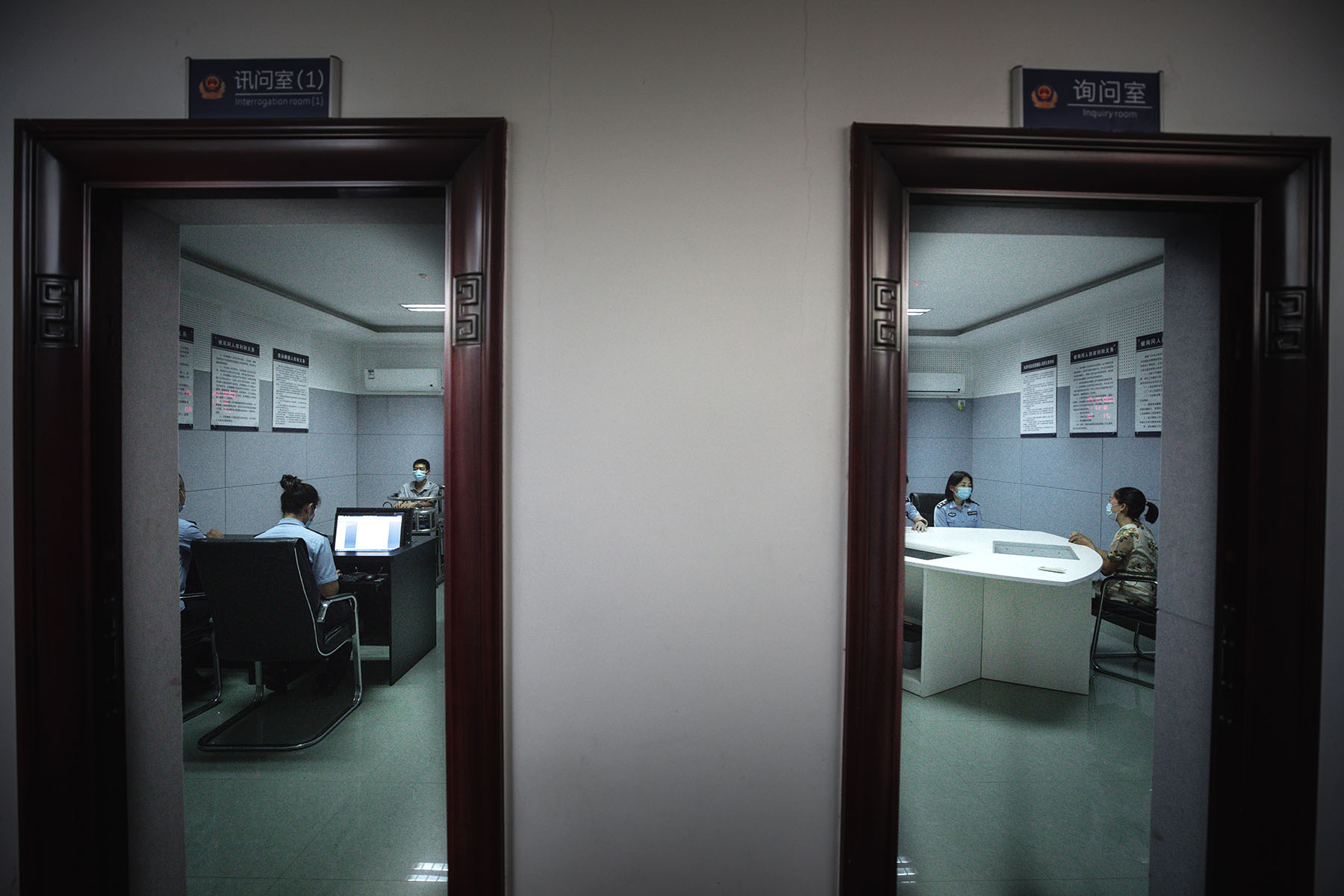
Fresh approach
In recent years, Yunnan's anti-drug strategy has evolved to also emphasize the treatment and rehabilitation of drug users.
While law enforcement remains robust, the province acknowledges that enforcement alone cannot resolve the drug problem — especially since Yunnan serves as a major entry point for heroin and methamphetamine from the Golden Triangle.
"Anti-drug work is not just about fighting the drug trade, although that's very important," said Wang Zeyu, a police officer with the Narcotics Control Brigade of Wuhua Sub-bureau at the Kunming Municipal Public Security Bureau.
"It also involves raising public awareness about drug trafficking, and psychological counseling for former drug users. It is comprehensive."
This approach aligns with one of China's new strategies in tackling drug-related issues. Since 2005, the nationwide People's War on Drugs has focused on creating "drug-free communities".
According to Ministry of Public Security data, China has set up 92,000 community drug treatment and rehabilitation stations, staffed by 48,000 social workers, which serve over 80 percent of communities.
"In our years of experience, we have found that while physical detoxification is relatively easy, overcoming psychological addiction is much more challenging," said Wang, who is also head of the anti-drug social governance office in Kunming's Wuhua district.
"This difficulty contributes to high relapse rates. Therefore, psychological counseling aimed at addressing the hidden demons in addicts' minds is crucial."
Drug users often struggle to reintegrate into family life and society, and frequently lack legal sources of income.
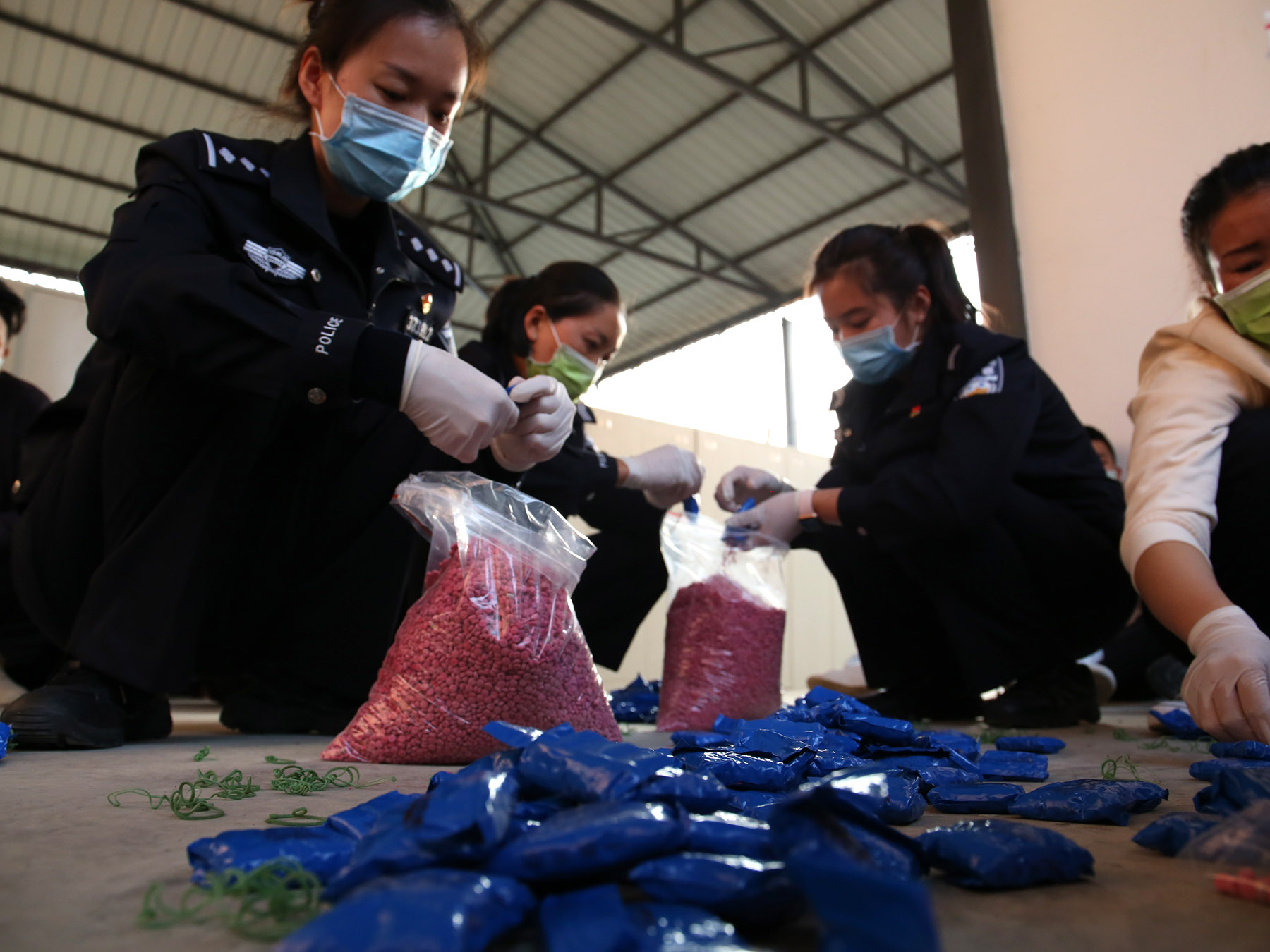
This lack of stability can lead to relapses, especially when they congregate with other addicts, undermining the effectiveness of treatment, according to findings cited by Yunnan Legal Daily from the Kaiyuan Public Security Bureau.
Since 2003, the Kaiyuan Public Security Bureau has conducted annual surveys regarding the living conditions of drug users.
The surveys revealed that 86 percent of drug users are concerned about their health, 72 percent want assistance in quitting, and 82 percent seek job opportunities.
"Drug users face significant barriers when trying to reintegrate into society," Wang said. "One major challenge is the discrimination they encounter while looking for employment."
Their relationships with family members are often strained. Many drug users are separated from their spouses and children, complicating their efforts to gain acceptance upon their return to society.
ALSO READ: 'Birth-friendly' jobs boost options for working mothers
Since 2009, Wang has led initiatives in psychological counseling, and training professionals in pilot communities.
In 2021, a studio called Spring Rain was established in Wuhua district. "The name reflects gentle psychological support — like spring rain that silently nurtures life," she explained.
The studio is staffed by one certified anti-drug social worker and a team of 17 police officers with counseling certificates.
"Seeing so many recovering addicts return to society, full of life and renewed purpose, and regain the warmth of their families, makes me feel that being a police officer who helps them is enough," said Wang.
Contact the writers at zhaoruinan@chinadaily.com.cn


